India'a Elections #1 - The Exercise Begins
![]()
On April 16, India began the first phase of a national election. The voting will extend over several weeks as Indians go to polling places to cast their ballots to elect 543 MPs (Members of India's Parliament), the Lok Sabha.
There are 47 official political parties in India but only two, the venerable Congress Party and the Bharatiya Janata Party (BJP), are national, The others are regional or local, representing a panoply of castes, political persuasions, and special interests. Many of these parties have aligned with one or the other of the major parties to form Fronts or Alliances and a collection of "left leaning" ones have banded together around the Communist Party India to form a third front.
In an effort to understand the issues and the positions of these contenders, we have been reading the India's English language newspapers, The Hindu and the Indian Express, and watching the English news on television. We have found that much of the coverage is about accusations, denials, and political rhetoric, with the result that little space is left for discussions of policies or comparisons of the positions on the issues.
It seems quite likely that neither the Congress or the BJP will win an outright majority, but a strong showing by either will enable recruitment of allies among the MPs representing the smaller parties. When the new MPs take office, they will then begin the complex negotiations to form a government, a process impossible for most Americans to imagine. In the end, the new government will be formed and India's Prime Minister will be named.
The first phase of the voting occurred on April 16th in Kerala and other places. As we traveled through Kerala, the posters for candidates were everywhere - pasted on the rocks and walls along the roads, on building walls and on large signboards.
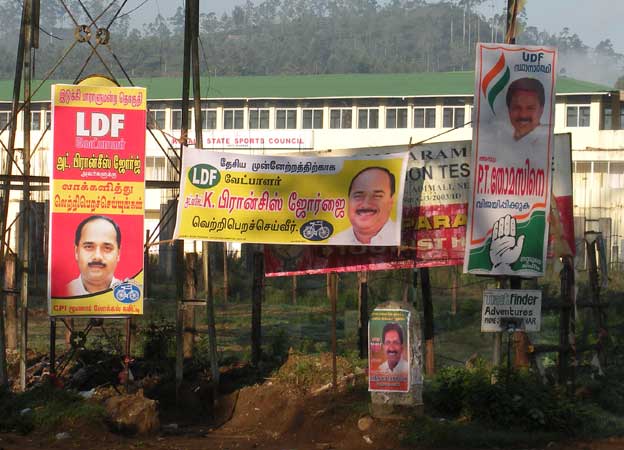
There were even vehicles with loudspeakers driving the streets extolling the virtues of candidates and asking for voters' support.
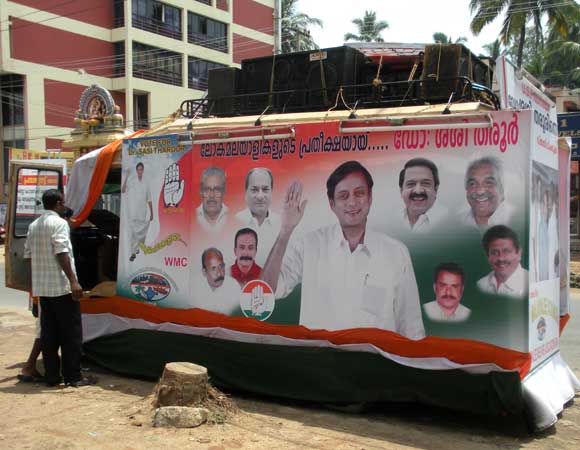
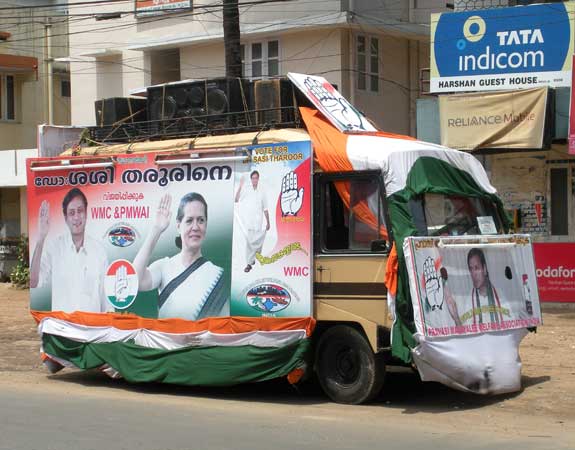
We were surprised and fascinated to learn that one of the Indians we admire, author and globalist Shashi Tharoor, is running for MP in the district around Trivandrum. It has been fun to see his picture plastered everywhere. One evening, we watched a group of his young supporters staging a spirited show on the street near our hotel.
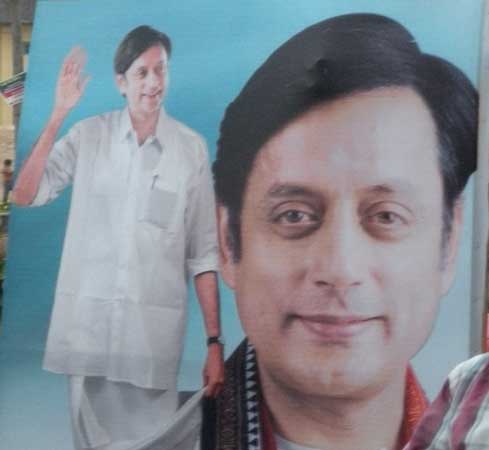
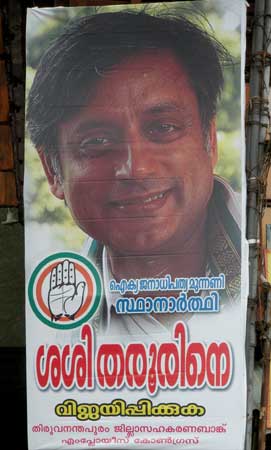
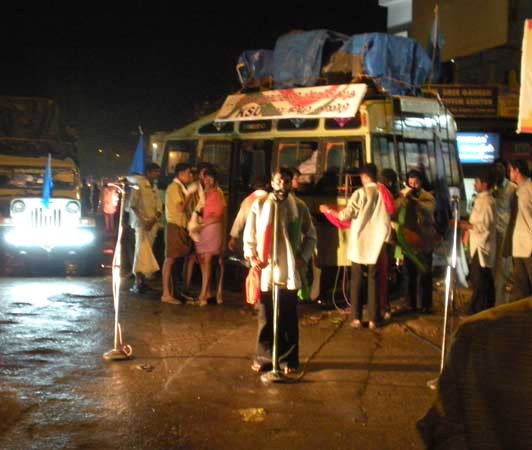
As to the issues and official party positions, we learned that the major parties publish manifestos but the lack of attention to these by the media means that there is little public debate on the substantive and far reaching proposals that the different political parties have made. There are no nationally televised candidate debates as there are no national candidates. Voters choose an MP from their home district to represent them in the national Parliament, so we wonder what issues voters take into account when they vote. Do they consider their candidate's position on national issues or even international relations around the world?
We also wonder whether the formation of a new central government in Delhi will really make much difference in people's lives, since many functions of government have been devolved to the state and local level. Central government is responsible for foreign policy, of course, so the new Prime Minister, if it is not Manmohan Singh, will be a new face with new ideas. The agreement with the US that was forged by George Bush around nuclear technology is controversial here and may come under scrutiny if there are new leaders. We are not sure if that would be positive or negative.
Whatever happens, as this greatest exercise of democracy unfolds, we feel privileged to be here to observe and to try to make sense of what happens!
Click here to read the next installment in this story
Click here to return to Our PioneerWest homepage
![]()